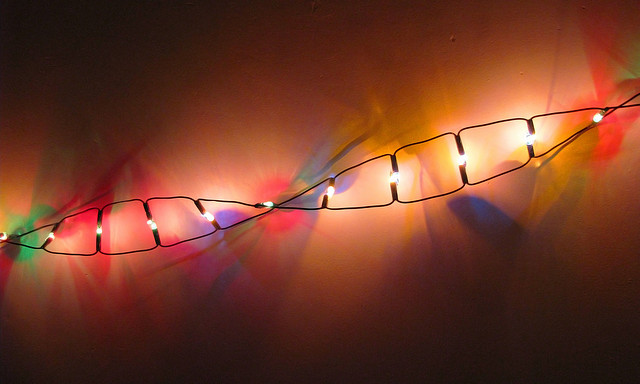
The US Patent and Trademark Office handed out patents on human genes for about 30 years, but genomic patents were blocked after a landmark Supreme Court ruling last year.
The patent holder in that case, Myriad Genetics, had patented a test on the BRCA1 and BRCA2 genes. The test shows mutations that reveal which women are more susceptible to breast and ovarian cancer. The BRCA test is substantially cheaper in countries where it wasn't patented, such as Canada.
After losing its case, Myriad didn't give up. Instead, it quickly filed a new round of lawsuits, trying to keep competitors like Ambry Genetics out of the business of BRCA testing. The new suits named different patents, which instead of simply claiming the gene itself, included "method" claims and also discussed the use of DNA "primers"—an entirely lab-made substance which Myriad lawyers said were still open to being patented.
But in a decision (PDF) published yesterday, a three-judge panel from the US Court of Appeals for the Federal Circuit has dismantled Myriad's new arguments.
"The primers before us are not distinguishable from the isolated DNA found patent-ineligible in Myriad," wrote Circuit Judge Timothy Dyk, on behalf of a unanimous panel. "Primers necessarily contain the identical sequence of the BRCA sequence directly opposite to the strand to which they are designed to bind. They are structurally identical to the ends of DNA strands found in nature."
As for the method claims, they represented Myriad's attempt to monopolize basic science. Infringing the claims "require merely comparing the patient’s gene with the wild-type and identifying any differences that arise," noted the judge.
Those claims are invalid under new rules established by the Supreme Court this summer in the Alice v. CLS Bank case. The method claims do "nothing more than spell out what practitioners already knew—how to compare gene sequences using routine, ordinary techniques.... those comparison techniques were the well-understood, routine, and conventional techniques that a scientist would have thought of when instructed to compare two gene sequences."
"We believe strong patent protection is essential to innovation because it guarantees a period of reward," said a Myriad representative in a statement provided to Ars. "Patent protection provides research based industries with an incentive to invest in research and development. We are very disappointed with the Court's ruling. We are currently reviewing the decision and will consider all of our options."
Ambry began offering its competing test immediately after the Supreme Court's 2013 decision, and it was quickly sued by Myriad. The company fired back, not only challenging the new patents but pointing out that much of the research done at University of Utah, which co-owned the Myriad patents, was done in collaboration with other institutions.
"I knew intellectually that we were right, and our basic arguments were correct," stated Ambry CEO Charles Dunlop in a company press release on the court win. He continued:
I have cancer, and I could not believe—I found it offensive, actually—that somebody with cancer would not have options for genetic testing. Because we believed our position was correct under the law, we decided to move forward and defend Ambry from Myriad’s claims... Now it will come down to service and expanding science, not gene patents.
Myriad has two last options for appeal, neither of which is likely to succeed. The Supreme Court already rejected Myriad's first batch of patents in a unanimous decision, and it's hard to imagine the high court finding great sympathy for a second round. As for a reconsideration by the full "en banc" Federal Circuit, Dennis Crouch on the Patently-O blog opined that such a reversal would be "extremely unlikely" in this case.
reader comments
77